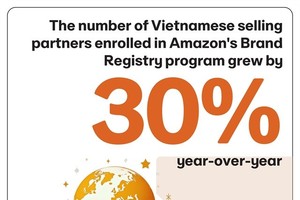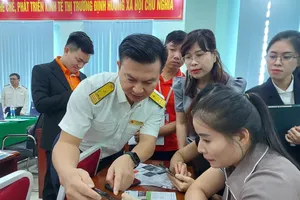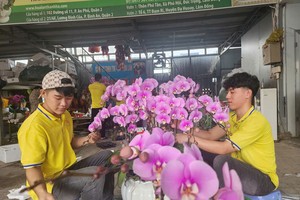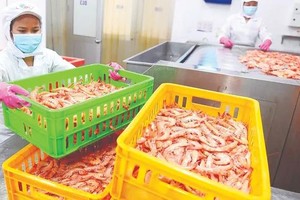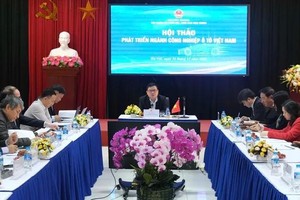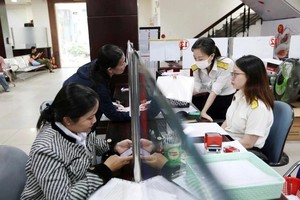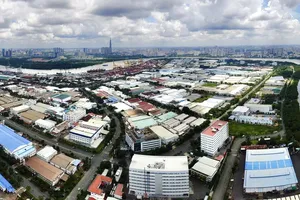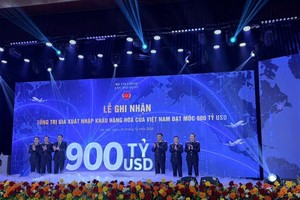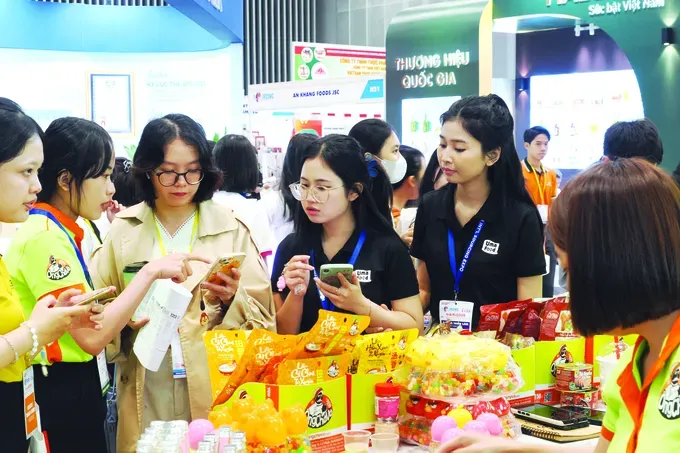
Numerous violations of intellectual property (IP)
This was a key takeaway from a recent forum titled ‘Improving Intellectual Property Policies – A Driving Force for Innovative Enterprises’ held in Ho Chi Minh City.
A prominent example of these struggles was highlighted by Binh Minh Plastics Joint Stock Company. Mr. Bong Hoa Viet, an adviser to the company's board of directors, detailed how the company, despite having official IP registrations for its products, is frequently a victim of trademark infringement. According to adviser Bong Hoa Viet, newly established businesses with nearly identical names are producing and selling plastic pipes using packaging that prominently features the term ‘Binh Minh’.
This practice has led to widespread confusion among consumers, contractors, and distribution partners. “Many consumers have called to complain about water leakage after installing what they thought were our pipes in underground concrete,” Mr. Viet stated. “When we investigated, we discovered they were not our company’s products. This has resulted in a loss of credibility, customers, and ownership of our own name.”
In response, Binh Minh Plastics has filed complaints with authorities and pursued legal action. The company has also organized conferences with its distributors to help them identify genuine products and raise awareness about the issue. The company’s experience underscores the urgent need for clearer and more effective IP protection policies to safeguard legitimate businesses in the country's increasingly digital economy.
However, this struggle has been long, costly, and at times seemingly powerless. Specifically, even when expert assessments have confirmed violations, the competent authorities have failed to act upon them; in some cases, the conclusions lacked deterrent effect, leading offenders to show disregard for the law. The company’s expenses for self-protection have already amounted to tens of billions of Vietnamese dong.
Deputy Director Nguyen Thanh Nam of the Domestic Market Management and Development Department under the Ministry of Industry and Trade stated that the violations of intellectual property rights are becoming increasingly sophisticated, particularly with the significant shift towards e-commerce and social media. In the first six months of the year, authorities have inspected and addressed over 50,419 cases related to smuggling, counterfeit goods, and intellectual property violations, with the total value of the infringing goods reaching thousands of billions of dong. He believes that this situation not only harms consumers but also distorts the business environment, stifles innovation, and creates challenges for legitimate enterprises.
Completing the legal framework for business protection
Deputy Director of TAT Law Firm Mai Thi Thao stated that brand value can account for 30 percent to 50 percent of a company's worth, or even more. However, the current situation in Vietnam is quite concerning. In 2024, there were 1,256 cases of counterfeit goods and violations of intellectual property rights that were addressed. In the first half of 2025, authorities dealt with approximately 3,270 administrative violations related to counterfeit goods and intellectual property infringements. Notably, during the peak month (from May 15 to June 15, 2025), there were over 1,631 cases of counterfeit goods and intellectual property violations, with the value of seized items reaching thousands of billions of Vietnamese dong.
Common forms of intellectual property (IP) infringement include: imitating packaging and designs; falsifying trade names by creating company or store names that differ by only one character; counterfeiting industrial designs or trademarks; and even rushing to register another company's trademark before the legitimate owner has the chance to do so.
According to Lawyer Mai Thi Thao , these actions share a common thread that they exploit consumer confusion and trust to generate illicit profits. This practice not only causes legitimate businesses to suffer significant losses in market share, revenue, and reputation, but also forces them to incur substantial costs for legal proceedings and crisis management.
A root cause of this situation lies in the overlapping and outdated legal framework. Vice President Nguyen Thanh Binh of the Vietnam Invention Association noted that the trademark registration process can take 18 months to 3 years, while copyright registration takes only about 2 months. Consequently, many entities exploit this loophole by quickly registering copyright for a brand name, then launching products under that name, leaving the legitimate business unable to react in time.
Worse still, when disputes reach the courts, rulings often rely on whichever certificate was issued first, leading to infringers being legally recognized. He further pointed out that regulatory agencies lack interconnected databases: the Intellectual Property Office cannot access data from the Copyright Office, and domain name management remains fragmented—only “.vn” domains are regulated, while others are left unchecked. This lack of coordination creates loopholes that infringers readily exploit.
Deputy Director Nguyen Thanh Nam emphasized that, in addition to improving legal frameworks, businesses themselves must take the initiative in protection. "Nothing is more effective than self-protection. Enterprises must adopt strategies to secure their rights, identify risks, and raise awareness of protecting intellectual property," he said.
He suggested strengthening inspection and enforcement, while applying technologies such as AI and blockchain for real-time product traceability and authentication. He also proposed improving policies on digital asset protection, expanding international cooperation, and building an innovation-driven ecosystem.
From the perspective of enterprise support, Lawyer Nguyen Van Vien, Chairman of the Ho Chi Minh City Intellectual Property Association and former Deputy Director of the National Office of Inventions, stressed that businesses must go beyond registration to actively defend and act as true owners of their intellectual assets. Unlike tangible property, intellectual property cannot be kept secret but must be brought to market and promoted. Therefore, businesses must develop a deep understanding of their ownership rights, proactively secure them, and be prepared to face disputes.


